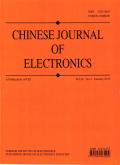QoS-Aware Computation Offloading in LEO Satellite Edge Computing for IoT: A Game-Theoretical Approach
IF 1.6
4区 计算机科学
Q3 ENGINEERING, ELECTRICAL & ELECTRONIC
引用次数: 0
Abstract
Low earth orbit (LEO) satellite edge computing can overcome communication difficulties in harsh environments, which lack the support of terrestrial communication infrastructure. It is an indispensable option for achieving worldwide wireless communication coverage in the future. To improve the quality-of-service (QoS) for Internet-of-things (IoT) devices, we combine LEO satellite edge computing and ground communication systems to provide network services for IoT devices in harsh environments. We study the QoS-aware computation offloading (QCO) problem for IoT devices in LEO satellite edge computing. Then we investigate the computation offloading strategy for IoT devices that can minimize the total QoS cost of all devices while satisfying multiple constraints, such as the computing resource constraint, delay constraint, and energy consumption constraint. We formulate the QoS-aware computation offloading problem as a game model named QCO game based on the non-cooperative competition game among IoT devices. We analyze the finite improvement property of the QCO game and prove that there is a Nash equilibrium for the QCO game. We propose a distributed QoS-aware computation offloading (DQCO) algorithm for the QCO game. Experimental results show that the DQCO algorithm can effectively reduce the total QoS cost of IoT devices.面向物联网的低地轨道卫星边缘计算中的 QoS 感知计算卸载:游戏理论方法
低地球轨道(LEO)卫星边缘计算可以克服缺乏地面通信基础设施支持的恶劣环境中的通信困难。它是未来实现全球无线通信覆盖不可或缺的选择。为了提高物联网(IoT)设备的服务质量(QoS),我们将低地轨道卫星边缘计算与地面通信系统相结合,为恶劣环境中的物联网设备提供网络服务。我们研究了低地轨道卫星边缘计算中物联网设备的 QoS 感知计算卸载(QCO)问题。然后,我们研究了物联网设备的计算卸载策略,该策略可在满足计算资源约束、延迟约束和能耗约束等多重约束的同时,使所有设备的总 QoS 成本最小化。我们基于物联网设备间的非合作竞争博弈,将 QoS 感知计算卸载问题表述为一个名为 QCO 博弈的博弈模型。我们分析了 QCO 博弈的有限改进属性,并证明 QCO 博弈存在纳什均衡。我们针对 QCO 博弈提出了分布式 QoS 感知计算卸载(DQCO)算法。实验结果表明,DQCO 算法能有效降低物联网设备的总 QoS 成本。
本文章由计算机程序翻译,如有差异,请以英文原文为准。
求助全文
约1分钟内获得全文
求助全文
来源期刊

Chinese Journal of Electronics
工程技术-工程:电子与电气
CiteScore
3.70
自引率
16.70%
发文量
342
审稿时长
12.0 months
期刊介绍:
CJE focuses on the emerging fields of electronics, publishing innovative and transformative research papers. Most of the papers published in CJE are from universities and research institutes, presenting their innovative research results. Both theoretical and practical contributions are encouraged, and original research papers reporting novel solutions to the hot topics in electronics are strongly recommended.
 求助内容:
求助内容: 应助结果提醒方式:
应助结果提醒方式:


